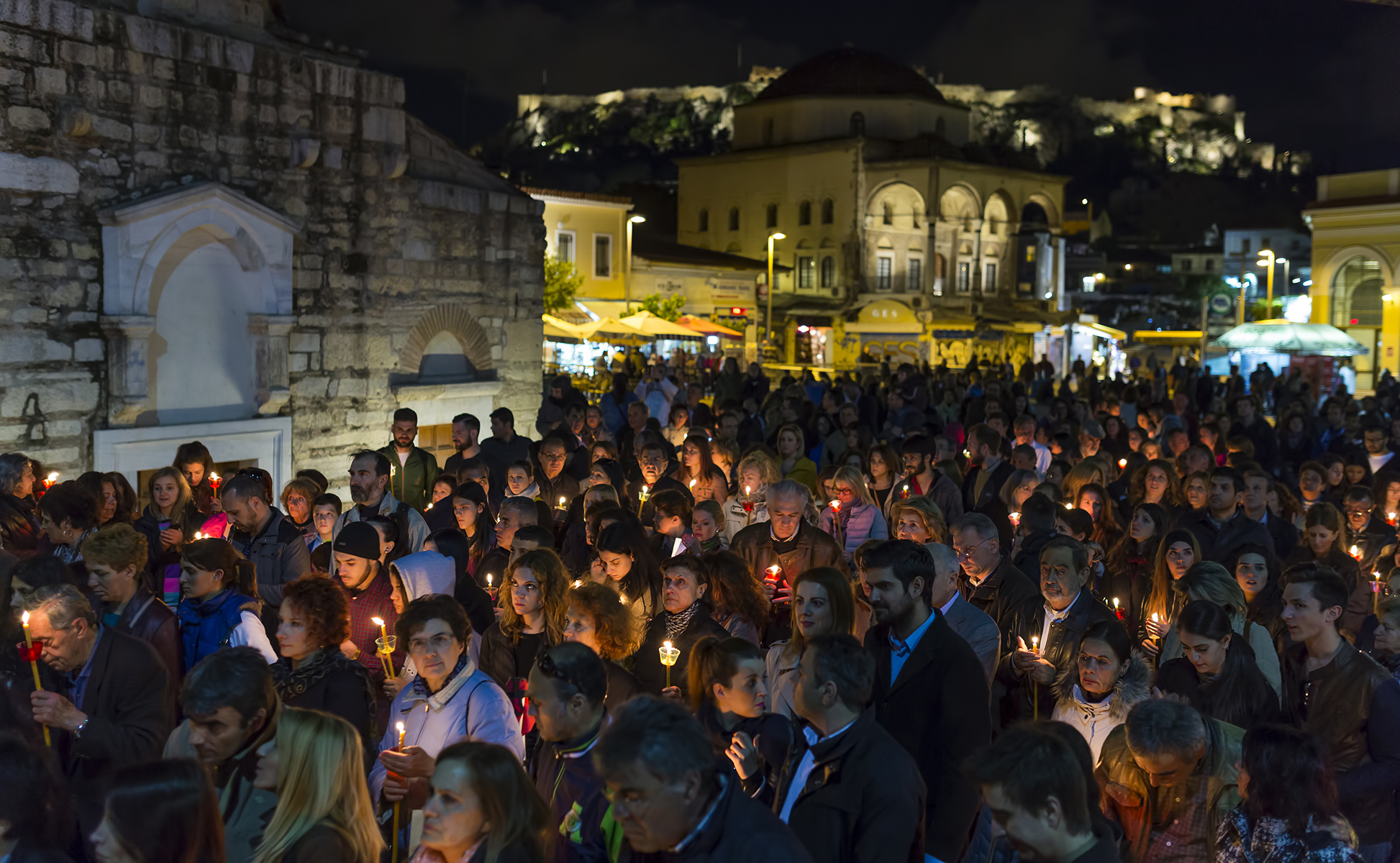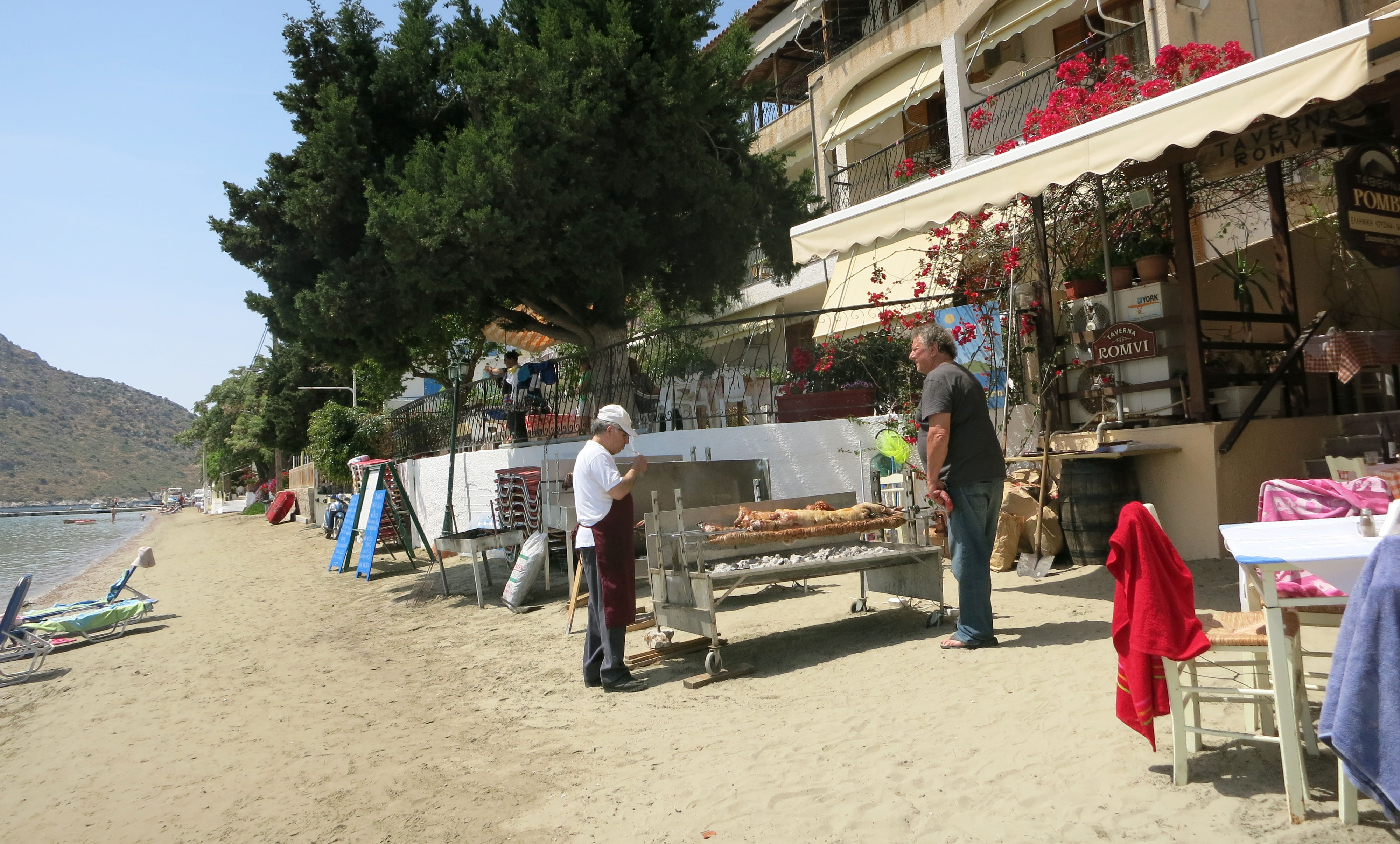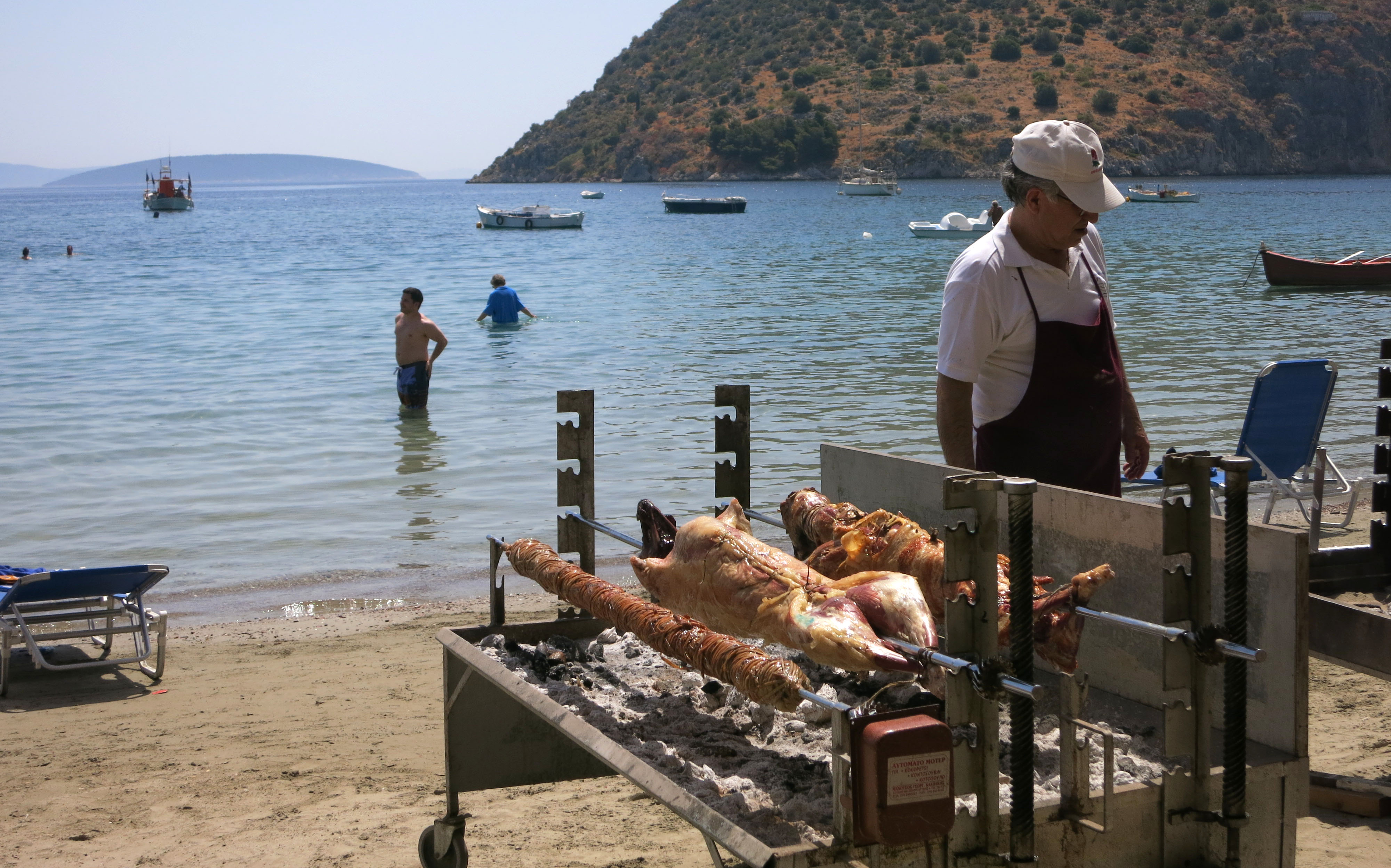Easter is the highlight of the Greek calendar. As Easter approaches, you feel a different tempo building up throughout the country. Taverna and restaurant owners around the islands busily spruce up their properties in readiness for the year ahead. Hotels begin to open, and last-minute touches are made to their gardens. Generally, the country awakens to the new season.
Easter heralds the end of winter and the hope for a prosperous year ahead. It’s as if Greece has awoken from a deep sleep. Everyone heads for their family home, meaning that many travel back to the island where they were born. At airports, ferry ports and bus stations, you see students with their luggage making their way home from college. Friends and families are preparing to get together, discussing what food they will prepare and looking forward to the feasting and merriment that is to come. Like Christmas in the UK, the general pace of work slows down a few days before Good Friday in preparation for the Easter holiday.
I have spent several memorable Easters with friends on the island of Tinos. Good Friday evening marks the start of the ceremonies, with the tomb of Christ being paraded round the church and through the streets, followed by the congregation. On Easter Saturday evening, you join the throng of people in their Sunday best making their way to the local church. There is a sound of excitement and expectation in their voices. Those who get there early usually manage to get into the church itself, but the majority stand outside talking in whispers, listening to the service on loudspeakers. Many carry candles, lit from the holy flame, signifying the light that is to be taken into their homes. Children scurry about excitedly, making the most of the opportunity to meet friends and younger relatives who they have perhaps not seen for a year.

The service comes to its climax when the priest announces “Christ is risen!” and then the mood changes as everyone echoes the cry (“Christos Anesti!”) and hugs and kisses are exchanged. And then the fun starts – spectacularly loud bangers are set off and rockets released. Neighbouring churches compete for the most spectacular and loudest display and, for a while, one could think that the whole island was at war.
Getting the candles home while still lit is the aim, especially if it is windy, and this is always a challenge for the children, who devise all manner of protection for that precious flame. Once at home, it’s time for a traditional soup before going to bed looking forward to Easter Sunday, the barbequed whole lamb (souvla) and the overeating that is to come, starting with the competition, over breakfast, of cracking the red-painted hard boiled eggs which symbolise the breaking of Christ’s tomb and his resurrection from the dead. (You try to crack the pointed end of your companions’ eggs with the pointed egg of your own – a bit like playing conkers! – to the accompaniment of much laughter all round.)

From then on, it’s all about food; traditional Easter pastries like Tsourekia, Koulourakia and Flaounes; the sheer joy of good company, much talking and laughing, memories and the sheer exhaustion that comes from just too much food and wine.

Easter Monday follows in the same vein, but the festivities are generally organised by the mayor, and the local gatherings held in every village, with plentiful wine, food, dancing and traditional music, are open to all. Everyone is welcomed; any shyness on the part of the visitor quickly dissipates.
If ever you have the opportunity to visit Greece over the Orthodox Easter, then I urge you to seize the chance – you’ll have a fantastic time!
PS Stella’s mother in our office makes excellent flaounes. This is a savoury Cypriot, Easter speciality, made with eggs, halloumi cheese and mint – shame it’s not Easter every week




